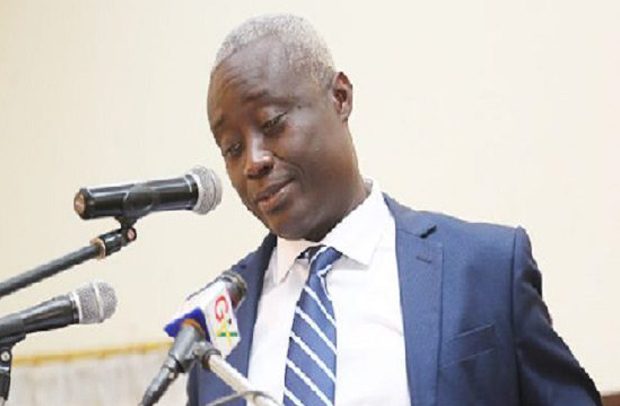Maxwell Opoku-Agyemang
A FORMER Acting Director of the Ghana School of Law, Maxwell Opoku-Agyemang, has reacted to media publications about his suitability to be recommended for nomination to the Court of Appeal.
Mr. Opoku-Agyemang, in a statement, indicated that he has not been officially notified or contacted about the said recommendation for nomination, neither was he served with a copy of a petition to the Inspector General of Police to investigate him.
Th IGP has been petitioned to arrest and put Mr. Opoku-Agyemang on trial for admitting 10 students who failed the mandatory entrance examination into the school.
The petitioner, Korsi Senyo, claims that a committee of inquiry set up by the General Legal Council (GLC) established that the 10 students were illegally admitted into the Ghana School of Law.
While Mr. Opoku-Agyemang admits the admission of the 10 students in the school on concessionary basis, he said they have since been withdrawn from the school, as their admission was without the approval of the GLC.
He, however, denied the petitioner’s claim that he has been found guilty by a committee of enquiry, stating that the three-member disciplinary committee set up to conduct disciplinary hearings against him, the Registrar and the Deputy Registrar of the school on charges of insubordination and others, was yet to commence its work, let alone pronounce any sanctions.
Touching on the circumstances that led to the admission of the 10 students, he said he submitted two proposals – concessionary admission and full fee-paying system to the GLC upon assumption of office as Acting Director.
He said the concessionary system was to offer concessionary admissions to wards of the faculty, staff and other key stakeholders without compromising the meritorious admission system, while the full fee-paying system was meant to stem the tide of Ghanaian students travelling to other jurisdictions, notably the Gambia to pursue professional legal education.
Mr. Opoku-Agyemang indicated that during the 2020/2021 academic year, he managed to convince the General Legal Council to admit all students who scored 50 per cent and above, and that culminated in the admission of 1,045 students.
“In addition to the 1,045 students, the school offered concessionary admission to 10 students upon request from key stakeholders who have contributed immensely to the school and the nation as a whole. This brought the total admission to 1,055, compared to the 450 admitted in 2018/2019 and the 128 students admitted in 2017/2018 academic year. Admittedly, the offer of the 10 concessionary admissions was made without the approval of the General Legal Council but was not done in secrecy,” he pointed out.
He stated that the issue was brought to the attention of the chairperson of the Examinations Committee, and other key members of the council were also aware due to discussions on the issue prior to the admissions.
He added that the admissions were offered without any ill-motive or for any personal gain, but in the interest of the Ghana School of Law.
“Indeed, it should be made known that one offer of admission paved the way for the release of an entire building at KNUST which serves as the Kumasi Campus of the Law School. This enabled the school to increase the intake in Kumasi from 50 to over 200, as well as securing places for a library, staff common room, administration facility and a canteen for the students,” he added.
Mr. Opoku-Agyemang further stated that the GLC somewhere in July 2021, established a three-member committee to investigate the admission of the 10 students, and the committee found that the students wrote but failed the entrance exams but were admitted on concessionary basis without the approval of the GLC. The committee recommended the withdrawal of the 10 students, which has been carried out.
He also touched on his 23 years service to the law school, highlighting some major infrastructural improvements at the School of Law during his tenure as Acting Director.
BY Gibril Abdul Razak

